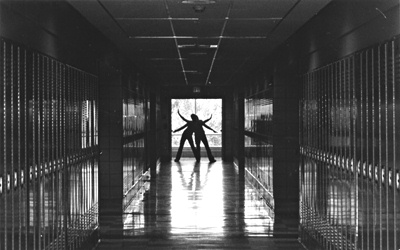All Nonfiction
- Bullying
- Books
- Academic
- Author Interviews
- Celebrity interviews
- College Articles
- College Essays
- Educator of the Year
- Heroes
- Interviews
- Memoir
- Personal Experience
- Sports
- Travel & Culture
All Opinions
- Bullying
- Current Events / Politics
- Discrimination
- Drugs / Alcohol / Smoking
- Entertainment / Celebrities
- Environment
- Love / Relationships
- Movies / Music / TV
- Pop Culture / Trends
- School / College
- Social Issues / Civics
- Spirituality / Religion
- Sports / Hobbies
All Hot Topics
- Bullying
- Community Service
- Environment
- Health
- Letters to the Editor
- Pride & Prejudice
- What Matters
- Back
Summer Guide
- Program Links
- Program Reviews
- Back
College Guide
- College Links
- College Reviews
- College Essays
- College Articles
- Back
The Sandy Hook Hypothesis
A brief internet search will yield something particularly startling. By simply searching for “school shootings” one will find a plethora of examples of what can be called The Sandy Hook Hypothesis. The hypothesis being that by, having the information promoted, society is unwittingly creating a demand for violence. In a sense, the post-Sandy Hook Era mentality is partly culpable for the school violence today. With that, it would be disingenuous to believe that school shootings are a new occurrence. The issue is a rather longstanding one with many causal origins such as bullying, racism, mental health, prior violence, and the romanticization of violence.
Violence in schools has never been a sparse occurrence. The earliest recorded instances of violence date back to the 1800’s. Although occurring on a far less grandiose scale, having been perpetrated by primitive rifles and the earliest revolvers. Shootings were few and far between, resulting in 2-3 casualties before the gunman was either apprehended or killed. Instances were usually carried out by the occasional disgruntled parent or simple-minded child. Nothing compared to the calculated slaughters of today, happening at the rate of once weekly.
The causes of scholastic violence remain as eclectic as the schools afflicted. Political pundits froth at the opportunity to push their party line. It matters not whether it is the gun controlling leftists, or the Second Amendment right wing. Failing to empathize with the families, they attempt to project their beliefs en masse. Organizations have their own beliefs as to the root of the violence. With limited searching, one can find an abundance of websites. Each pushing their own reasons from bullying to mental health, to violent history. While strong points are made, there has yet to be a consensus. What truly is the cause of school shootings?
Post Sandy Hook has yielded concerning statistics. Since Sandy Hook, 142 school shootings have occurred. This is a sobering statistic at its core because of the increase in violence. The increase after Sandy Hook would lead one to believe that excessive media coverage could be a causal factor. It is only logical that those who feel disenfranchised would desire the power and fame associated with media coverage.
Media coverage is not solely relegated to school shootings, their reach is far more diverse than that. Looking at Vester Flanagan and Elliot Rodger, a pattern emerges that suggests these are attention killings. Vester Flanagan was a disgruntled former employee who recorded himself shooting and killing two former co-workers in cold blood. Eventually, Flanagan got the media recognition he wanted when the primary media outlets gave him his fifteen minutes of fame. Similarly, Elliot Rodger recorded a manifesto stating that he was not on the same social standing as women. His motives were to punish women for not liking him and to punish sexually active men for enjoying life more than he did. Rodger then killed six while injuring fourteen others before committing suicide. In both cases, the perpetrator was a social pariah who wanted, what we all want, to be famous.
Now this isn’t solely on the media for reporting these events. Society is also culpable because what society wants will drive what the media displays. It’s not an easy fix either, human nature is wired to love violence. As a society and as a species, we are not ready to evolve past our human nature. However, a short-term fix would be to omit the names of the perpetrators and focus on the victims. Because no matter how disgruntled a person gets, they will not be willing to be a victim for their fifteen minutes of fame as victims have less power than their attackers.
Violence won’t end due to one change, that’s inarguable; However, it’s an appropriate place to start.

Similar Articles
JOIN THE DISCUSSION
This article has 0 comments.
